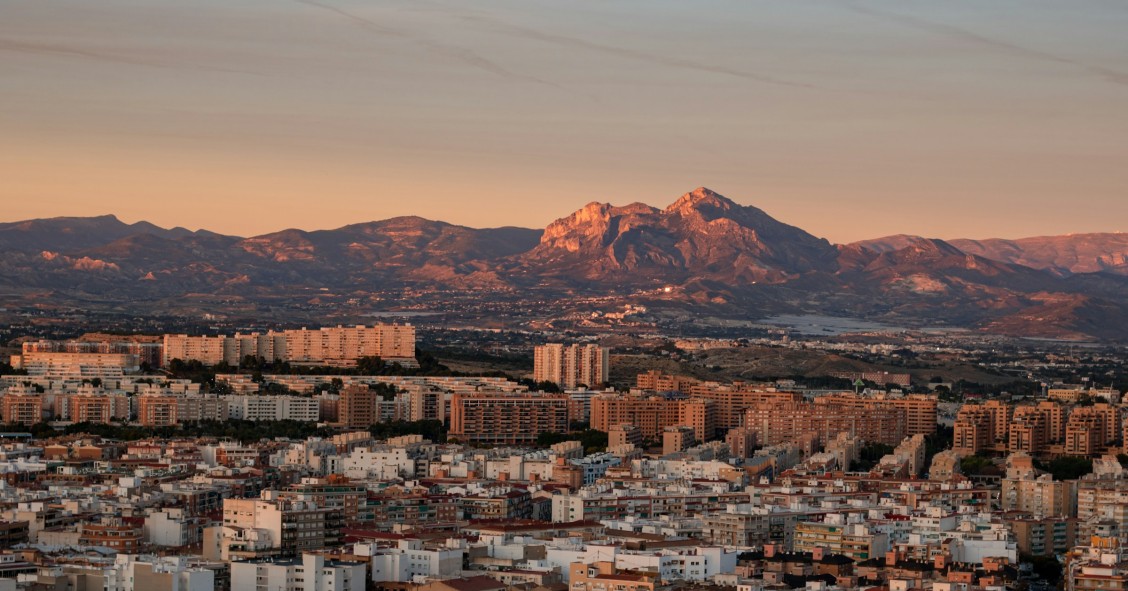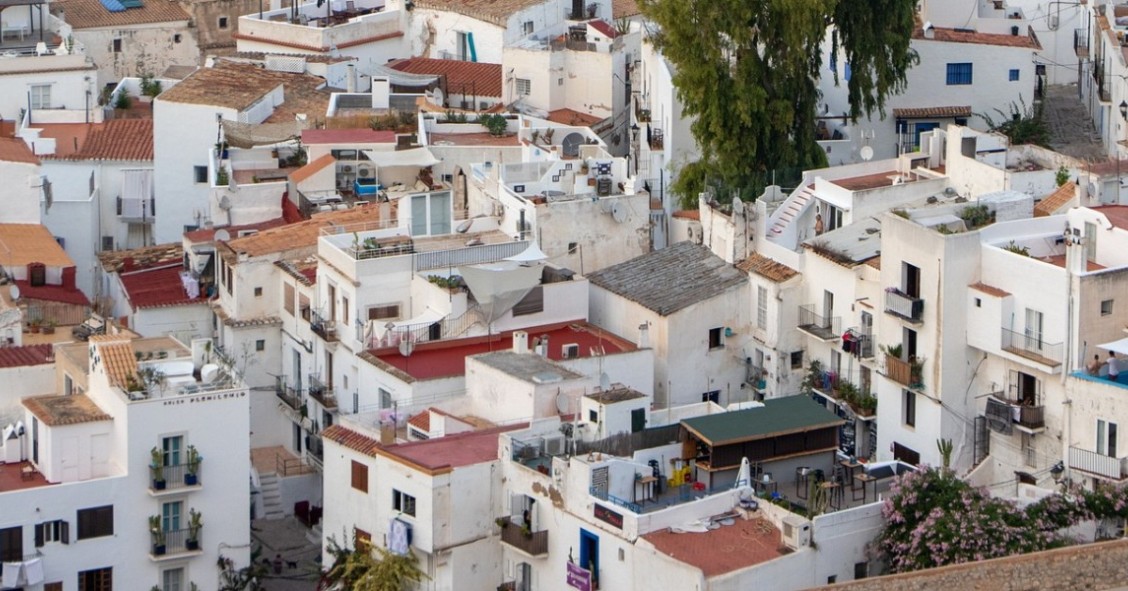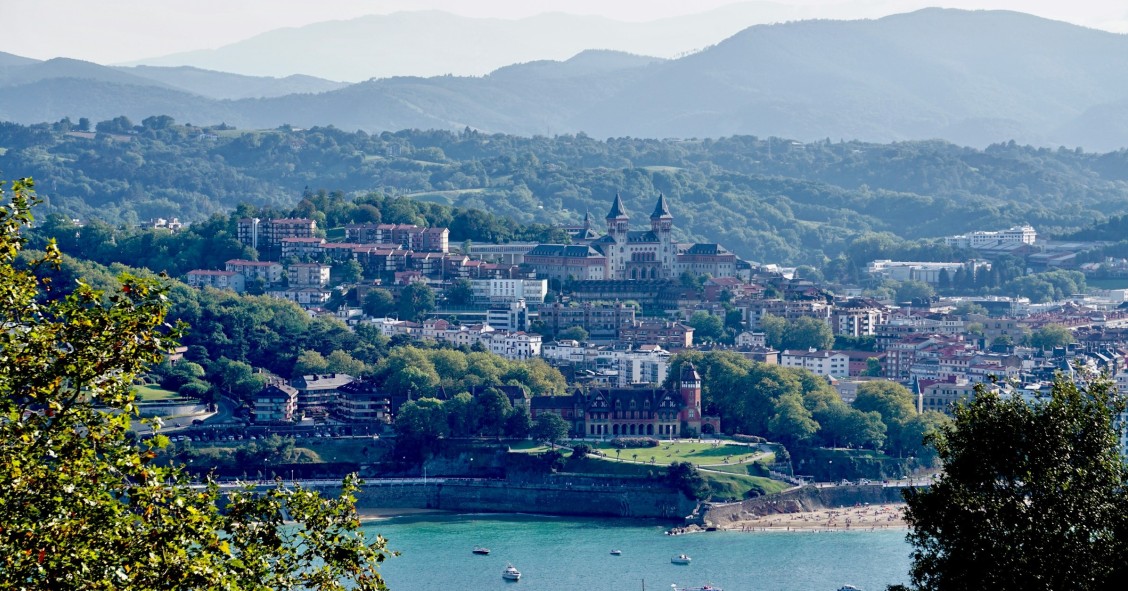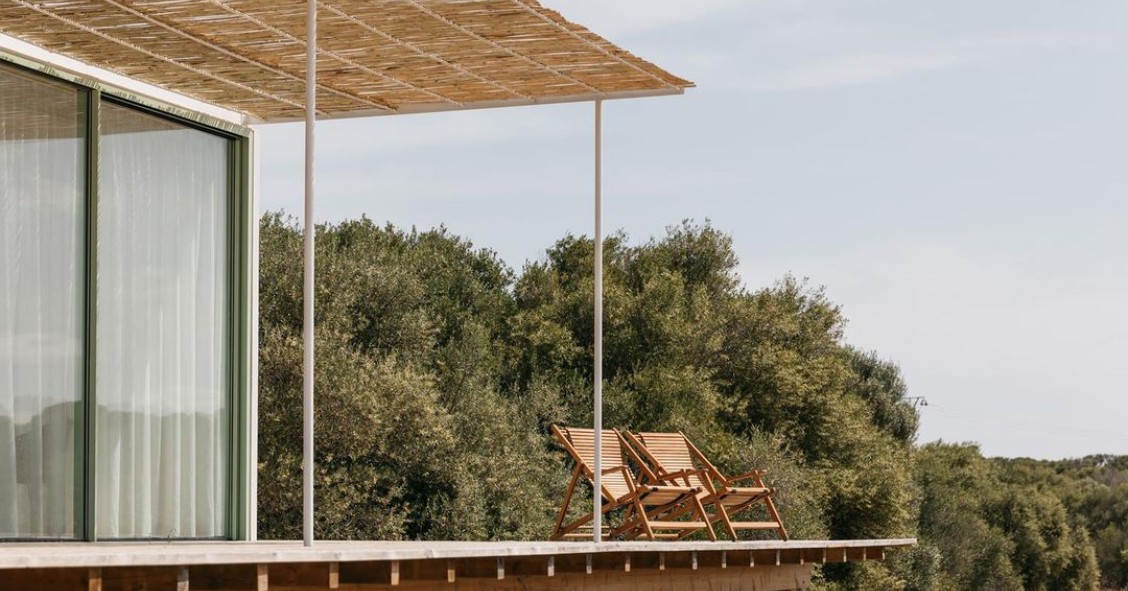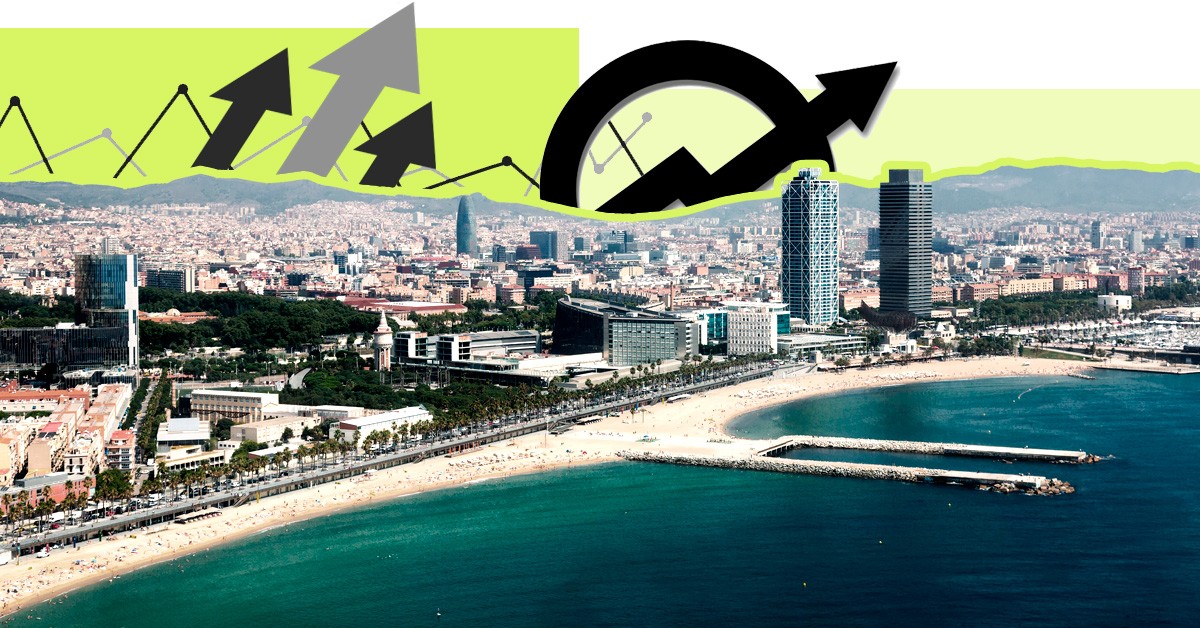
Squatting is on the rise in Spain once again. This is confirmed by data from the Ministry of the Interior, which shows an increase in crimes of usurpation and unlawful entry into buildings, both criminal offences.
According to the Statistical Portal of Criminality, 16,426 incidents were recorded across the country last year, compared to 15,289 in 2023, representing a year-on-year increase of 7.4%. This marks the third-highest figure in the historical series, which began in 2010, surpassed only by the records of 2021 (17,274) and 2022 (16,765). It also signals a return to the upward trend after two consecutive years of decline.
These figures include data from cases reported to the State Security Forces and Corps, such as the National Police, the Civil Guard and regional and local police forces. However, they do not account for cases resolved out of court, whether through financial settlements or eviction companies. On average, 45 illegal home occupations occur daily in Spain, with Catalonia recording the highest number of cases and Barcelona being the most affected province.
Squatting in Spain: Catalonia accounts for more than 40% of cases
In 2024, Catalonia recorded a total of 7,009 cases of home invasion and unlawful entry, accounting for 42.6% of the national total. In other words, more than 42 out of every 100 crimes of this nature occurred in this autonomous region.
Far behind, the regions with the next highest numbers of cases were Andalusia (2,207), the Valencian Community (1,767) and Madrid (1,451). Slightly lower figures were recorded in the Canary Islands (663), Castilla-La Mancha (538) and the Balearic Islands (514).
All other autonomous regions reported fewer than 500 cases of usurpation and home invasion last year, with Navarra (96), La Rioja (65) and the cities of Ceuta (14) and Melilla (11) ranking the lowest nationwide.
The number of cases recorded in Catalonia is nearly equal to the combined total of the next six autonomous communities with the highest figures. Andalusia, the Valencian Community, Madrid, the Canary Islands, Castilla-La Mancha and the Balearic Islands together accounted for 7,140 cases, compared to 7,009 in Catalonia alone. Moreover, while the 2024 national total is the third highest in the historical series recorded by the Ministry of the Interior, led by Fernando Grande-Marlaska Gómez, Catalonia’s figure is the second highest on record. It is only surpassed by the 2021 peak of 7,345 cases, following a 12% year-on-year increase – significantly higher than the 7.4% rise at the national level.
The provinces with the most cases
By province, Barcelona leads the national ranking by a significant margin. In 2024, it accounted for 30.9% of all cases in Spain, with a total of 5,077 incidents – a 10% increase compared to the previous year, surpassing the national average.
The provinces with the next highest numbers of home invasions and break-ins recorded by the State Security Forces and Corps were Madrid (1,451), Girona (940), Valencia (876), Tarragona (785), Alicante (687), the Balearic Islands (514), Seville (506), Murcia (479), Málaga (451) and Cádiz (400).
Meanwhile, 24 provinces recorded fewer than 100 cases in 2024. At the bottom of the national ranking were Álava, Ceuta, Palencia, Zamora, Melilla, Teruel and Soria – the only provinces where fewer than 20 cases were reported last year.
Record number of people investigated and arrested in 2024
Another key takeaway from the Ministry of the Interior's annual data is that, although the number of home invasions and break-ins remains below the 2021 peak, the number of individuals investigated and arrested for these crimes has reached a record high.
According to the Statistical Crime Portal, 11,133 people were investigated or arrested for squatting in Spain in 2024 – the first time this figure has exceeded 11,000 in the historical series. Compared to the previous year, this represents a 17.7% increase. Additionally, the number of investigations and arrests has risen by approximately 11% compared to the previous records of 2020 and 2021, when around 10,030 cases were recorded.
Once again, Catalonia stands out as the most affected autonomous community, recording 8,039 arrests and investigations for these crimes in 2024 – accounting for a staggering 72.2% of the national total. In contrast, Madrid registered just 847 cases, while Andalusia recorded 629. The Valencian Community ranked fourth, with 476 cases.
Barcelona remains far ahead at the provincial level, with 5,686 people investigated or arrested for usurpation and unlawful entry – nearly half of all cases nationwide. It is followed at a considerable distance by Girona (1,131), Tarragona (936), Madrid (847), Alicante (246) and the Balearic Islands (203).
Lawsuits soar and Catalonia remains at the forefront
According to data from the General Council of the Judiciary (CGPJ by its acronym in Spanish), between January and September 2024, the Courts of First Instance received a total of 1,782 proceedings for possessory oral trials related to the illegal occupation of residential properties.
In the first quarter of the year, 563 cases were recorded, with the number rising to 639 in the spring and 580 in the summer. Although the volume of cases in the third quarter was lower than in the previous three months, the year-on-year increase was significant, with a 55% rise compared to the same period in 2023, when 373 cases were recorded in the summer.
Year-on-year increases were observed in most autonomous communities, except for Galicia, Asturias, La Rioja and Extremadura, which saw decreases, and the Canary Islands, where the number of cases remained unchanged compared to the previous summer. However, the most significant increases were recorded in Cantabria (a 500% rise), Catalonia (173%), Castile and León (130%) and the Basque Country (112%).
Catalonia led in terms of the volume of legal proceedings in both the third quarter and the year as a whole, accounting for nearly 20% of all cases in both instances, according to reports from idealista/news.
According to the CGPJ, between July and September 2024, 123 new cases were filed in the Catalan Courts of First Instance, accounting for 21.2% of the national total (580). Andalusia and the Valencian Community completed the "top 3", each registering over a hundred cases during the third quarter of the year. These three autonomous communities also led for the first nine months of 2024, with Catalonia at the forefront, representing 57.5% of the new proceedings.
Squatting remains a problem
Both the data from the Ministry of the Interior and the CGPJ confirm the strong assertion made by experts that the number of squatters in Spain is not decreasing, but rather increasing. In particular, attention is drawn to squatters, which also include tenants who have voluntarily and deliberately stopped paying rent, yet do not appear in official statistics on reported squatting.
In addition to the official figures from cases reported to the Security Forces and lawsuits in court, some cases go unreported. According to legal experts consulted by idealista/news, an increasing number of property owners affected by illegal squatting are opting for alternative methods to regain possession of their properties as quickly as possible, either through negotiations and payments to the squatters or by hiring specialist eviction companies.
It is important to note that the average time required for a ruling in favour of eviction has reached an all-time high, with the process taking nearly 24 months on average in Spain. This includes the first instance and any potential appeals in the Provincial Courts. As a result, many property owners are increasingly seeking alternative methods to recover their properties as quickly as possible.


